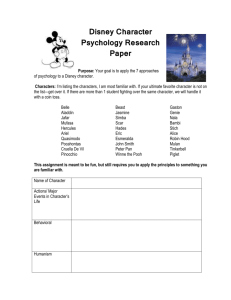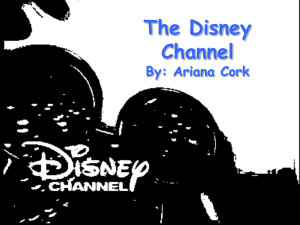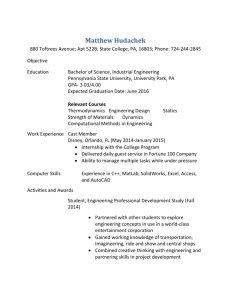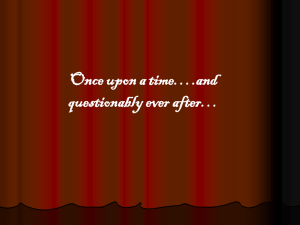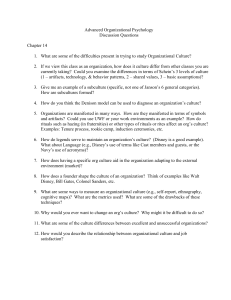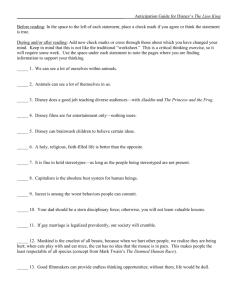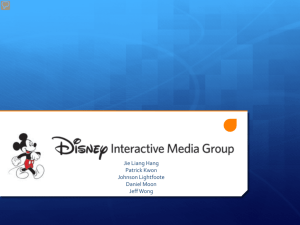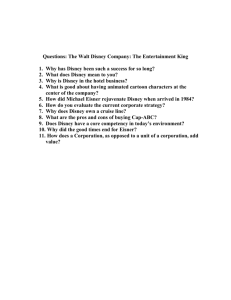What Is A Mission Statement?
advertisement
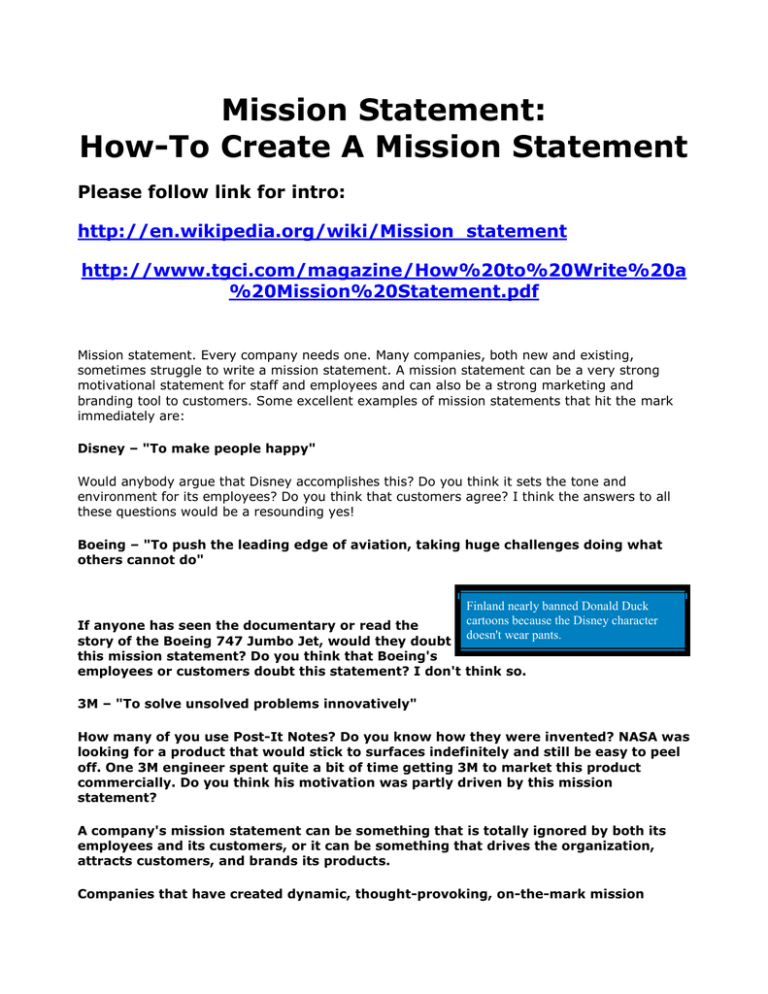
Mission Statement: How-To Create A Mission Statement Please follow link for intro: http://en.wikipedia.org/wiki/Mission_statement http://www.tgci.com/magazine/How%20to%20Write%20a %20Mission%20Statement.pdf Mission statement. Every company needs one. Many companies, both new and existing, sometimes struggle to write a mission statement. A mission statement can be a very strong motivational statement for staff and employees and can also be a strong marketing and branding tool to customers. Some excellent examples of mission statements that hit the mark immediately are: Disney – "To make people happy" Would anybody argue that Disney accomplishes this? Do you think it sets the tone and environment for its employees? Do you think that customers agree? I think the answers to all these questions would be a resounding yes! Boeing – "To push the leading edge of aviation, taking huge challenges doing what others cannot do" Finland nearly banned Donald Duck cartoons because the Disney character doesn't wear pants. If anyone has seen the documentary or read the story of the Boeing 747 Jumbo Jet, would they doubt this mission statement? Do you think that Boeing's employees or customers doubt this statement? I don't think so. 3M – "To solve unsolved problems innovatively" How many of you use Post-It Notes? Do you know how they were invented? NASA was looking for a product that would stick to surfaces indefinitely and still be easy to peel off. One 3M engineer spent quite a bit of time getting 3M to market this product commercially. Do you think his motivation was partly driven by this mission statement? A company's mission statement can be something that is totally ignored by both its employees and its customers, or it can be something that drives the organization, attracts customers, and brands its products. Companies that have created dynamic, thought-provoking, on-the-mark mission statements got everyone involved in the process, from the lowest ranking employee to the highest ranking executive, while at the same time keeping in mind the needs of all their customers, even the least important. They brainstormed, reviewed and rewrote their mission statement until everyone was satisfied. The employees and management agreed that the mission statement correctly identified what they hoped to accomplish, and the customers agreed that the mission statement defined what they wanted and needed. What Is A Mission Statement? A mission statement is a written, easy-to-remember sentence, short list of bullet points, or paragraph illustrating a business' goals and purpose. It has one common function: to guide you and your employees in making critical decisions that effect the direction of your company. A mission statement identifies your company to its customers, vendors, the media and others that will be using or requiring its services or products. It is about providing solutions and adding value to your customers and market. Where Should You Keep It? Certainly not buried in some remote document that you bring out at Christmas time or some other event. Keep your mission statement in front of you, your management team and employees, and your customers. Include your mission statement in the executive summary of your business plan. Place it in large bold print in the front of your employee manual. Include it in as many advertisements, promotional materials, and other public documents as possible. Never lose sight of why you started your business and never compromise your ethics and values. The final credits for Fantasia list the sorcerer's name as "Yensid" - Disney spelled backwards. Creating A Mission Statement First of all, as we mentioned earlier, you should get everyone involved in a productive manner and do the following: 1. Pick One Central Theme. The theme should be easy to understand, noncontroversial, and translate into behavior that can gain support. Take Disney, mentioned earlier, for example. They wanted people to have fun. They wanted their employees to have fun. They wanted people to be able to escape, for just a moment, the grind and stresses of their day-to-day environment. So what is your theme? Does it deal with a product, service or both? Can it be easily understood and interpreted by both your employees and customers? In some cases, it may have to be mildly controversial to provoke thought and discussion. 2. Communicate With Action. Demonstrate your commitment and follow through with conviction. Participate in the committees and work groups and help them build the excitement and determination to succeed. 3. Focus On A Few Key Attributes Of Your Service Or Product. Take the example of Boeing, mentioned earlier. Do you want to push the leading edge of your technology? Do you want to accept challenges that others won't or can't? Do you want to solve problems that are difficult and challenging to solve? Does this key attribute bring value to your customers? 4. Don't Rush The Process. Brainstorming and creativity take time. Be sensitive to the process as well as the end result. Participants want to see results of feedback. You and your employee's time are too valuable to just go through an exercise in frustration. I have been part of organizations that just wanted a rubber stamp on the result and didn't give a hoot about the process. This is a very unique opportunity to build commitment, trust and morale in your organization. Don't blow it by trying to rush the process! Key Points To Include This might be your most difficult decision. If you're writing a one-sentence or oneparagraph mission statement, your job will more likely be more complicated, not less. A bulleted mission statement is easier, but may not accomplish what you want. Key statements that can be used to build a mission statement are: Statement of Purpose. What inspirational purpose appeals to higher values in both your employees and customers? Statement of Strategy. What is your business strategy, and how does it appeal to your employees and customers? Walt Disney originally had different names in mind for Mickey Mouse and Goofy: Mortimer and Dippy Dawg, respectively. Statement of Value. Identify values that form a link to the organization's strategy that employees can be proud of. Statement of Behavioral Standards. How does employee behavior relate to customer perception and value? Statement of Character. What is the organizational culture? Certainly it is impossible to include all of these in a short mission statement, such as Disney's, but the perception of their mission statement certainly encompasses the ideas. If you do a bulleted mission statement, the above statements are easier to address individually. It's up to you!
